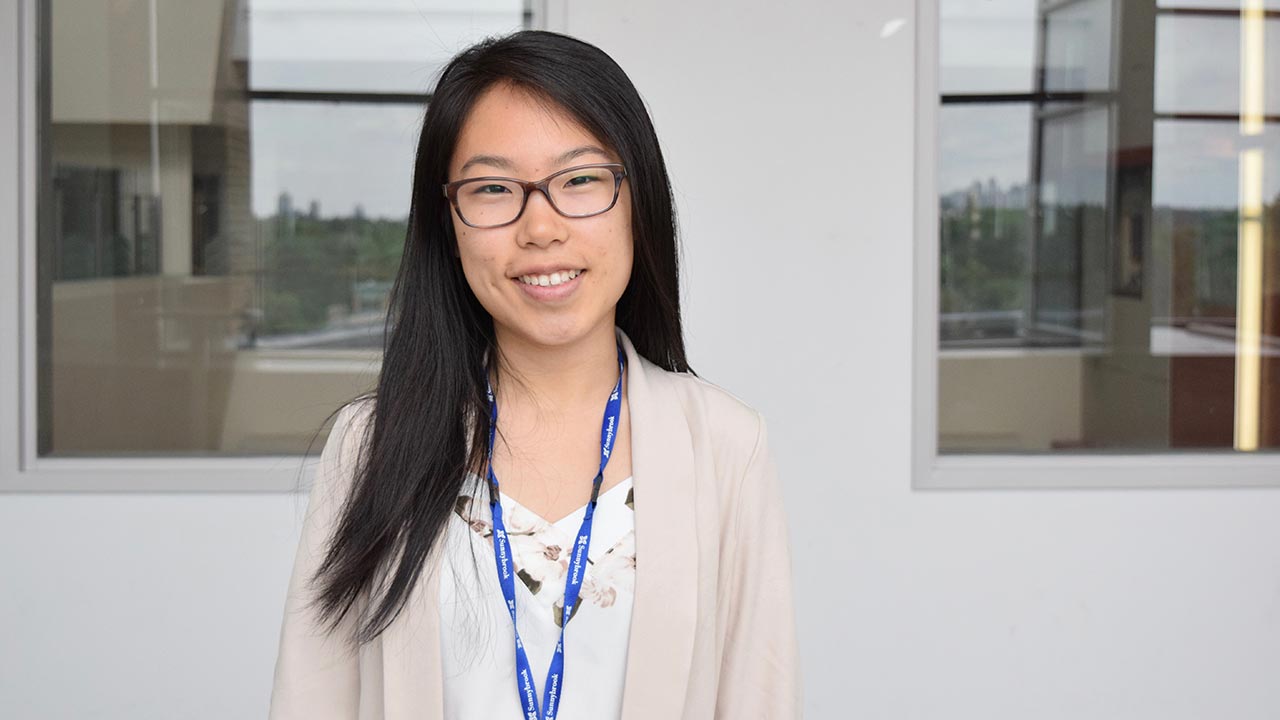“Teaching” computers to detect cardiac conditions
Tina Yu spent last summer studying the biology of cardiovascular disease with the aim of developing markers for ailments like heart failure. This year, Yu, who is in the Summer Student Research Program at Sunnybrook Research Institute (SRI), is working on detecting heart conditions from another angle: using medical imaging and computer science.
“When [my supervisor] said he was doing cardiac MRI, it was something I had to jump on. I’m really excited to work on this,” says Yu, who is finishing her degree in medical science from Western University. Within her program, she is specializing in medical biophysics, of which imaging is a big part. Under the supervision of Dr. Nilesh Ghugre, a scientist in the Schulich Heart Research Program at SRI, Yu is working on a project that uses a form of artificial intelligence called deep learning to identify diseases of the heart.
“Deep learning is pattern finding and image recognition,” says Yu. She is writing a computer program that takes raw data—in this case, hundreds of anonymized MRI scans of patients with various heart conditions—and uses this information to “learn” features of anatomy and disease. “When it’s ‘learning,’ we give it the ‘ground truth,’ based on a cardiologist tracing out where the myocardium [heart muscle] actually is. It looks at this, and over a large data sample, it ‘learns’ ‘this is the shape of the heart,’ ‘this looks like the border,’ and then ‘learns’ features that can be applied in the future,” she says.
Yu is writing algorithms for software that can visually separate muscle tissue from the blood, and then identify diseases like cardiomyopathy, a problem with the heart muscle that makes it difficult to pump blood to the entire body. The condition can lead to heart failure, where the heart becomes too weak to meet the body’s pumping needs. There are about 600,000 Canadians living with heart failure and 50,000 new cases of it diagnosed each year.
Yu says that the clinical application of the research is what appeals to her. “We usually think of artificial intelligence as robots taking over the world, but this is something that has clinical relevance to treat disease and make better diagnoses. I think that’s what is really cool about the project—integrating these two fields in a way that helps patients,” she says.
It has been a very busy summer for Yu. In addition to working on the project, she learned she was accepted into medical school. In the fall, she’ll be enrolled in the MD program at McMaster University, in Hamilton, Ont. Between her research, the occasional Netflix binge and making plans to settle in a new city, Yu has had little time for hobbies, except one. “I’m a huge baseball fan,” she says with a smile, pointing to the prominent Toronto Blue Jays sticker on her cell phone.
Her future is in medicine, but Yu plans to stay involved in research. She says that working at SRI has given her insight into how much energy and resources go into developing a medical innovation. She notes the studentship has been a valuable learning experience, in large part owing to the support and guidance she receives from Ghugre. “If I have any questions, I can always go to him. It’s great learning from him, too, because he’s really knowledgeable and a great mentor.”
Tina Yu received an SRI Summer Studentship Award.
In a nutshell
- Tina Yu is a summer research student supervised by SRI scientist Dr. Nilesh Ghugre.
- She is developing algorithms for a computer program that uses MRI scans of heart conditions to “learn” the anatomy of the heart and features of disease, toward earlier detection of conditions like heart failure.
- The experience has given her insight into the amount of work that goes into developing medical technology.



